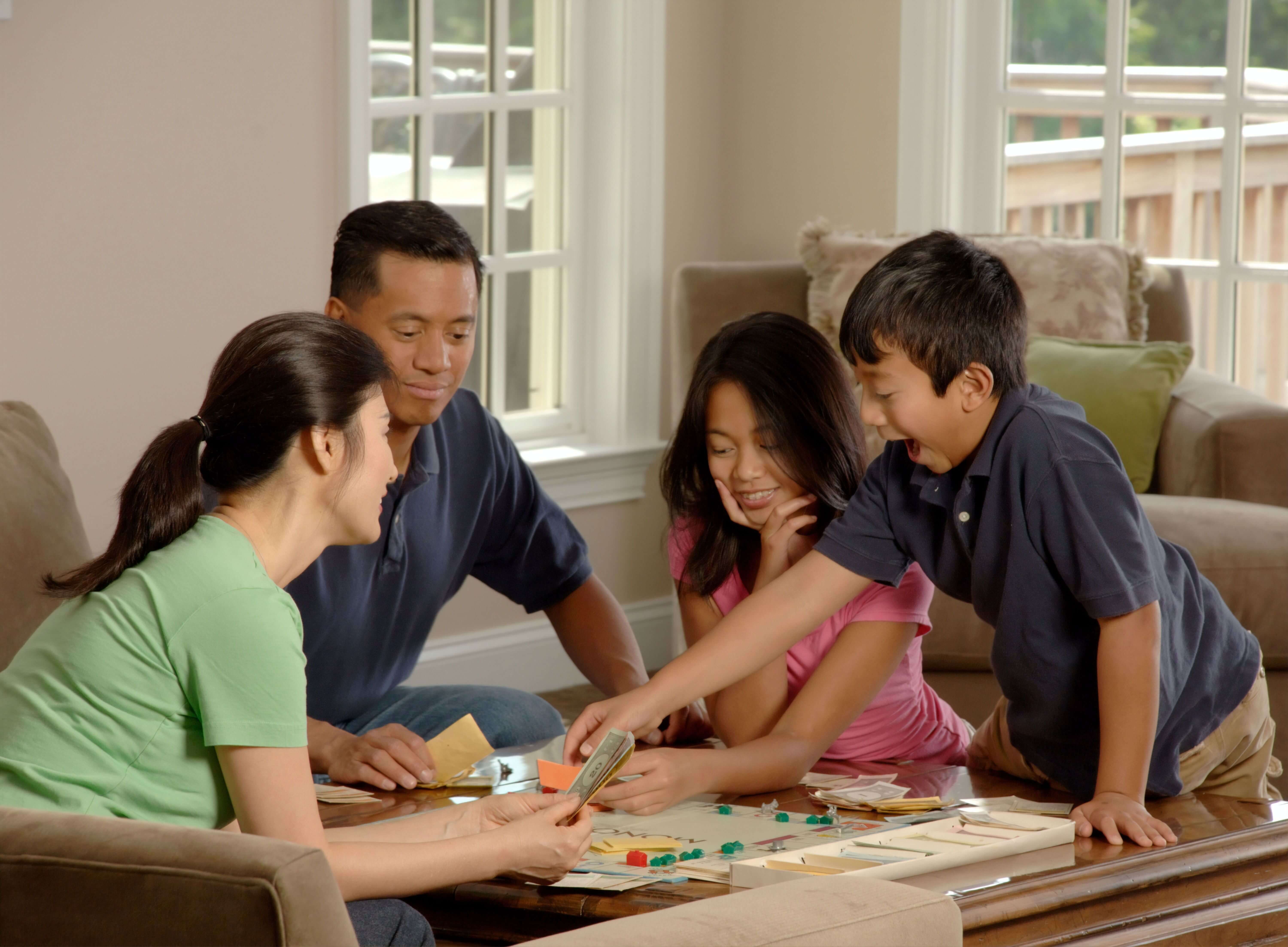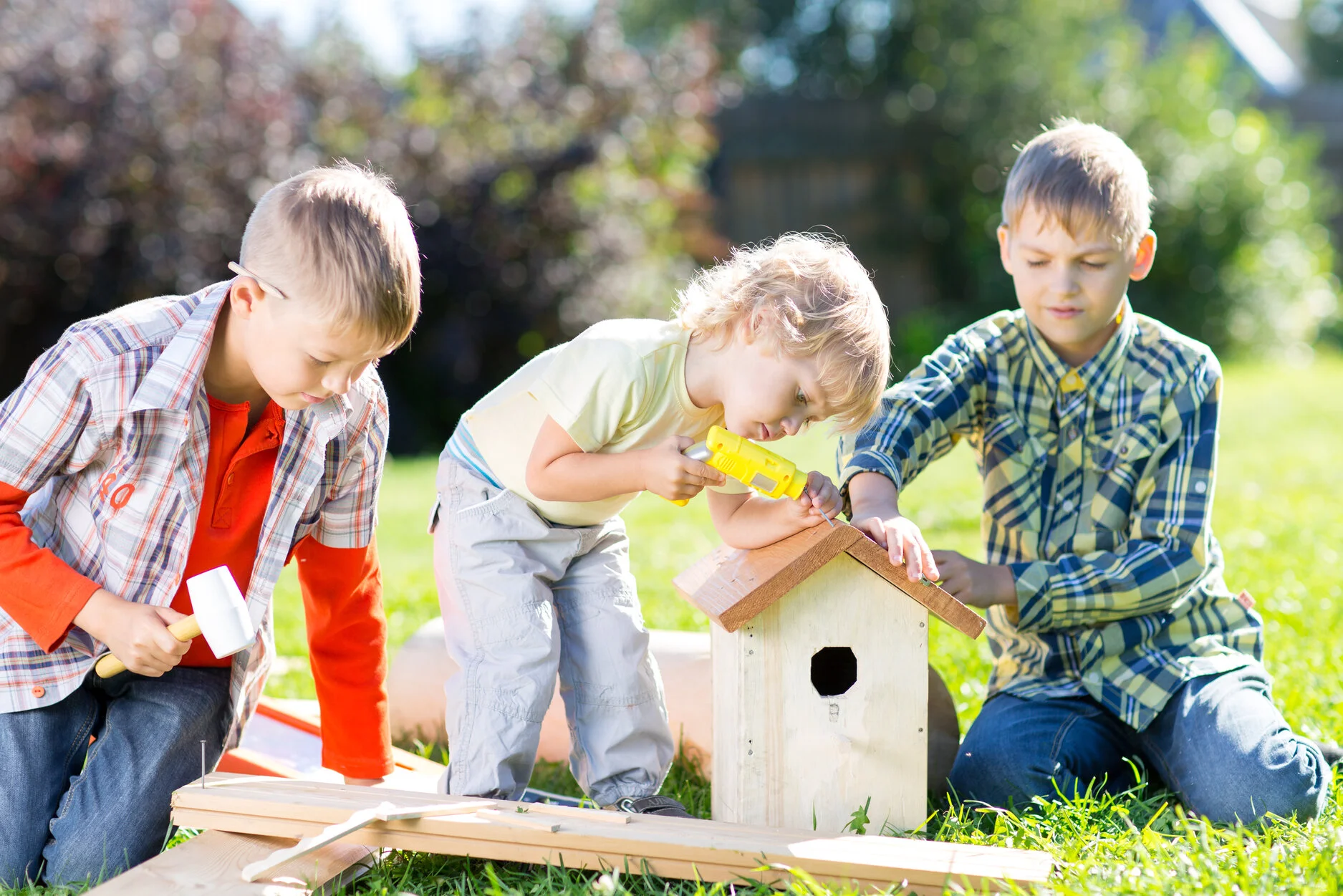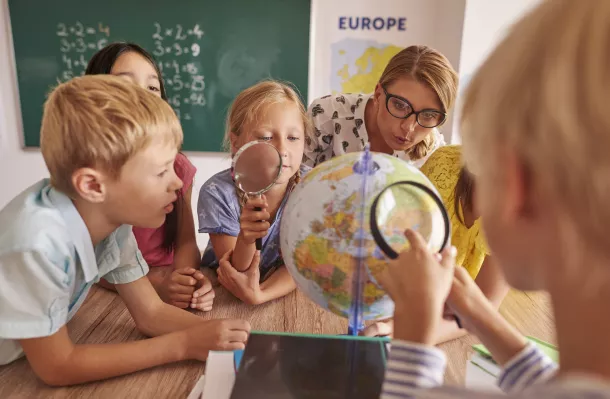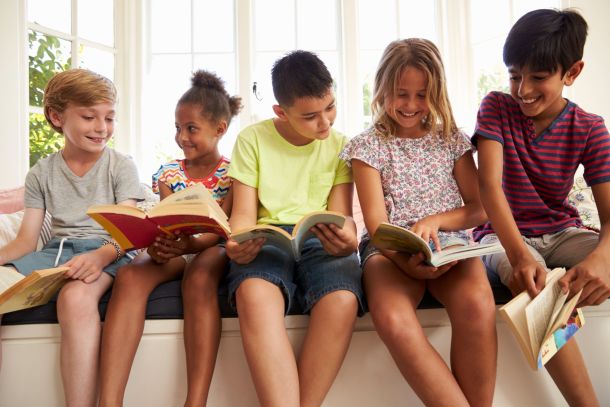
How to prevent summer learning loss. Useful activities and tools
The summer learning loss phenomenon, also known as the summer slide, refers to a decline in academic skills and knowledge that occurs during an extended break in the hot season.
Mention ”school assignments” to any pupil and you’ll see a frown, eyes rolling, or hear a grunt. Put it more bluntly, “school assignment” is a dreaded word. Add it to “vacation” or “summer break” when you talk to a child and you will surely get “the look”.
Summer break is, by definition, the long-expected moment when children break free from school pressure, responsibilities, and expectations. It’s understandable. Think only of how much adults await their time off, or even weekends, away from tasks and „to-do” lists.
If we look at summer projects from this point of view, the kids are right to want none of these. But there is the adult approach to the matter: the importance of continuous learning and the summer learning loss (SLL) phenomenon.
The good news is that it doesn’t need to be a conflict when it comes to summer fun and preventing learning loss. Technology and apps like Kinderpedia can make holiday assignments easy and fun to tackle.
Contents:
- Summer learning loss in numbers
- What neuroscience says
- Summer learning loss and technology
- 4 activities to prevent summer learning loss
Practical tips to keep summer learning loss under control
Learning loss has been studied since the 1970s by American scholars B. Heyns, Entwisle and Alexander. A more recent study by Allison Atteberry, and Andrew McEachin was published in 2020, using data collected from American schools over several years. The report shows that more than half of the students experienced learning loss over the five summers when they were observed. Forbes magazine cites a study that shows a significant loss of what the students have learned over the summer vacation – 40 % - which results in a detrimental impact on their educational progress. Other studies measured a loss between 25 and 50 % in school-year gain in maths (Paechter et al 2015; Thum and Hauser 2015; Cooper et al 1996).
Although children may vary in the extent of knowledge and skills they lose over the school year, it's important to acknowledge that learning loss is a genuine concern.What neuroscience says
Intellectual growth should commence at birth and cease only at death. (Albert Einstein)
Just like we need to continuously work our muscles to keep them fully functional and in proper shape to support our daily activities, the brain also needs constant stimulation to keep working at its best.
Neuroplasticity is a rather recently studied ability of the brain. Until some years ago, it was believed that the brain stops creating new neurons soon after birth. Presently, it is known that the brain, under continuous stimulation, keeps forming new connections, reorganising pathways, and, sometimes, even growing new neurons.
When we are born, the cerebral cortex forms about 2500 synapses, which grow up to 15000 by the age of three. In other words, we are “smarter” than we think at that very young age. During our first years we learn the most about our environments and ourselves, absorbing every bit of information.
However, because the brain is excellent at rationalising energy, by the time we reach adulthood, the brain is left with only half of those connections. The reason? It cuts out (or “prunes”) the weak connections, those they didn’t use too often to conserve energy.
“Good for them!” you might think. “Why waste energy on the unnecessary?” However, the more connections we have, the more knowledge and skills, the better we can respond to life challenges, and the more we can strive and live a fulfilled life.
Now, back to summer assignments. While the concept itself is usually associated with pressure, or even anxiety, and no fun at all, when properly assigned and done, it can turn into a great ally for a child’s learning process and development. It can represent that very stimulation the brain needs to reinforce existing synapses and create new useful ones.
What teachers can do to prevent summer learning loss
Tell me, and I forget, teach me, and I may remember, involve me, and I learn. (Benjamin Franklin)
While summer slide rates may differ based on home environments and social conditions, one thing remains evident: when students participate in educational activities during the summer, they can effectively retain the knowledge acquired throughout the school year and smoothly transition into the next grade level.
Fortunately, there are various creative and engaging ways to keep students connected to learning over the summer break.
On one hand, by implementing summer reading programs, project-based learning, and community-based initiatives, students are offered the chance to delve into their real interests, develop fresh skills, and nurture a passion for learning beyond the confines of a traditional classroom setting.
On the other hand, bringing technology in the learning process is the perfect excuse to keep children digitally connected beyond the regular school calendar and walls. Just like they already are on social media, but with an educational twist.
Kinderpedia is a digital platform and app whose core mission is to engage the entire school community, to accelerate learning and to simplify administrative tasks for the teaching staff and for school leadership. It serves as a communication tool that conveniently keeps schools and families in touch all year long. With intuitive features such as assignment upload & in-app verification, media and video sharing, personalised performance badges, reports and messages, the platform gives children a chance to take ownership of their projects, even build a personal portfolio from an early age, while teachers and families can easily keep an eye on their progress.
Not only do these solutions address learning loss, they also ensure students find the learning experience enjoyable and meaningful.
Now, let's explore some ideas of summer activities.
1. Journaling
One of the easiest and most satisfying activities that can become a helpful lifelong habit is journaling.
Children can be encouraged to keep a summer diary, to write how they spend their holiday, note the highlights of each day, observe the details, express how they feel and what they think. It is not only good writing and vocabulary practice, but also an excellent exercise to get to know themselves and to be mindful of their actions and experiences.
To make this more engaging, teachers can use an app to ask kids to regularly share with them or the class some thoughts and pictures to describe their summer experiences.
Kinderpedia’s assignments and direct message features are specifically designed to encourage easy communication between students and teachers or classmates and rapid feedback.
💡Learn how to make classroom interaction easy and fun, even during holidays.
2. Reading Club
Kids often regard summer reading lists as something to avoid, quickly forget, or somehow short-circuit. With the appeal of short, fun videos on TikTok or Youtube, getting a youngster interested in reading around 20 pages a day may seem like Don Quijote’s fight with the windmills. But it doesn’t have to be that way.
First of all, it is important to choose interesting, engaging titles for the children’s age and development stage. Consider what their personal interests are and choose titles that cover most of them. Make it about sharing. Get them to choose their favourite words, quotes, stories, characters, you name it, and share them with their classmates via a mobile app they all use. Challenge them to talk about their reads, to get others interested in what they enjoyed. Everything is more fun when done together with others.
While reading is a solitary activity, speaking about one’s reading material with others is very rewarding. This is where teachers step in, by offering reading challenges to their students and opportunities to share thoughts about their reading experience.
Thanks to educational or communication apps with integrated video-sharing platforms, teachers and students can easily stay in touch and talk about the books they love.
Read also:
Summer holiday homework ideas
that enocurage creativity and foster a thirst for knowledge
3. Outdoor Exploring
Nature can teach us so many lessons, which makes it a great asset in any learnig loss prevention plan.
During summer days, kids can go to a park and observe different elements of nature, animal behaviour, plants, and natural phenomena. Having them record such observations can take the shape of an adventure, making children imagine themselves as explorers in their own cities or gardens. It stimulates their imagination and exercises the power of observation. It can also be a good way to practise some maths. Instruct them to measure distances, count birds or flowers of a certain type, calculate rates, or anything else.
They can observe optical phenomena or how the laws of Physics apply in nature. This way, they’ll have a good example of how theory is used in real life. They’ll get a better sense of how theoretical notions are relevant to their everyday lives. Have them take pictures and videos and share them with you and their classmates – it will motivate them and bring more fun into an “official” holiday assignment.
4. Family games
Associating the family with the child's learning and being engaged in the process leads to strengthening the educational core. (Dr. Karen Mapp)
Family engagement is an important factor in preventing learning loss. In addition to engaging, practical summer assignments supported by tech solutions, doing summer activities together with parents and siblings plays a crucial role in continuous learning. It doesn’t have to be complicated.
Board games such as Scrabble or Monopoly are both educational and fun for the entire family, leading to better bonding as a bonus. Doing a practical house project together can teach kids not only practical skills, but also planning, taking responsibility, calculating, respecting deadlines, or communicating.
Teachers can help parents with ideas for family activities, easily sent via communication or educational apps. With Kinderpedia, parents can instantly talk to teachers and ask for support or feedback, so this kind of summer activity doesn't become a burden for busy parents.
4. Budgeting
Studies show that maths skills register the highest rates of learning loss over the summer. It is perhaps due to a lack of opportunities to practise them, as opposed to vocabulary and grammar, part of everyday talk and use.
Therefore, such tasks need extra attention and a twist to make them appealing and increase the chances to practise them. Teachers can encourage students to build budgets for a real or imaginary trip, or for a project they wish to achieve. They can use the Internet to check for prices and exchange rates or ask for offers. With the help of tech solutions, they can submit the budget gradually and get feedback, so they can continue on the right track.
To conclude, learning loss over the summer break poses a significant challenge to the educational progress of most students. However, we can encourage and support summer learning initiatives to pave the way for a smoother transition into the next school year. By using technology and educational apps such as Kinderpedia, we can empower students to maximise their potential and ensure a more equitable educational experience for all.
Make the most of summer by fostering a love for learning that extends beyond the boundaries of the classroom. Discover how Kinderpedia can support you in making summer assignments more fun.

Kinderpedia
The complete communication and management solution for schools and childcare centres.
Simplifies teachers' work and brings parents closer to their children's school progress.
Recommended articles
Want to improve your center quality? Kinderpedia is here to help! Not only do we provide thousands of informational content pieces like blog posts, podcasts, webinars and more, we are also makers of the #1 Rated and Reviewed Childcare Software.








